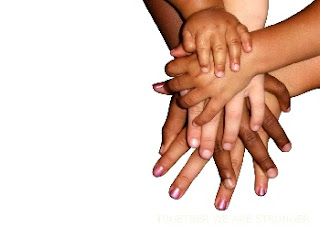When I first started seeing an emotional therepist, the biggest issue I think I had was that I felt weak. I believed that all my 'problems' were in fact much smaller and less important than I had made them in my head, and I felt useless and pathetic because I was struggling with them.
'Weak' had become a buzz word for me. I had turned it into a kind of self deprecating weapon. I would find myself repeating it in my head whenever I was angry at myself, as if the word was a knife and I was using it to stab my unconscious self.
My therepist encouraged- still encourages me- to avoid the word and instead replace it with the word 'vulnerable'. The thing is, weak and vulnerable are very similar states but with one key difference. Weakness implies inability to cope with things. Vulnerability implies wanting help from others in order to cope with things.
When we first discussed the concept of vulnerability, I had an almost physical aversion to the word. It made me squirm. I hated the idea of being vulnerable. I had images of exposing embarrassing, fragile and self-indulgent parts of myself to others, only to be manipulated, laughed at or scorned.
But, as with most concepts we have discussed, I allowed her the benefit of the doubt and took on board what she said to me. I agreed that in coming to talk to her, I had made myself vulnerable, and so far it had only helped me to feel stronger.
The effect of this small shift has been quite incredible. I didn't have to change much. All I actually did was open up a little more with people. I put out gentle feelers, maybe mentioning a subject I had been contemplating but hadn't spoken about yet, maybe making a jokey comment about something that, in the confusing mess of my head, was actually quite a big deal for me. And to my complete surprise, on the whole, people reacted with a mixture of astonishment, relief and pleasure that someone else had thought the same things they themselves were thinking!
The strength you can find in alliance is a beautiful thing. You only need ONE person to say 'I know exactly how that feels' and the effect can be massive.
And following on from that, you will probably discover that as well as other people who, like you, haven't really been able to speak about these subjects before, there are many people out there who not only feel the same way, but know ways of making sense of whatever the 'problem' is. They may have been feeling the same way for many years, they may have read books and researched the subject, or simply lived with it for long enough to find ways to minimise it.
On a personal level, I have recently allowed myself to be vulnerable by writing an email to a friend of a friend- someone I barely know, who was recommended to me as a wealth of knowledge on the subject of subpersonalities. Even writing the email I doubted myself and what I was doing. I wondered if this person would feel uncomfortable having a stranger ask personal questions. And yet again, I have been pleasantly taken aback at how helpful the experience has been!
I recieved a long, thoughtful reply which has helped me to clarify my own ideas about my subpersonalities experiment. And I now want to pass on the knowledge I have gained.
I have decided that the process of identifying the five characters pictured earlier in this blog was a creative one rather than a scizophrenic one. The thing is, we are totally conditioned to see ourselves as ONE individual organism: 'ME' but really this is not the case. We are, each of us, an intricate and extraordinaily well balanced collection of different parts all working together. Anyone who has ever looked down at their feet, wiggled their toes, and had the odd feeling that they are somehow alien, will know what I mean by this. I don't see any reason why we shouldn't think of our personality/subconscious mind as the same thing. We do so many different things, learn so many conflicting lessons, and play so many different roles in our lives that it is hardly surprising we end up with many different thoughts and arguments in our heads.
So rather than saying my 'whole' personality is made up of a collection of distinct 'sub' personalities, I have come to the conclusion that my personality is a never-ending mass of all the lessons I've learned, people I've been influenced by, job roles I've taken, etc. The process of identifying characters was a way of chopping up the mass into managable pieces that make more sense to me. It's like tidying up! I have picked up all the bits and pieces that are lying everywhere in a confusing mess, and I have started putting them away into draws with big labels on saying things like 'LONELINESS' 'LOGIC' and 'DAYDREAMS'.
Things are much easier to understand if they're in small bitesized chunks, and as well as that, now I always know where to go to find them.



No comments:
Post a Comment